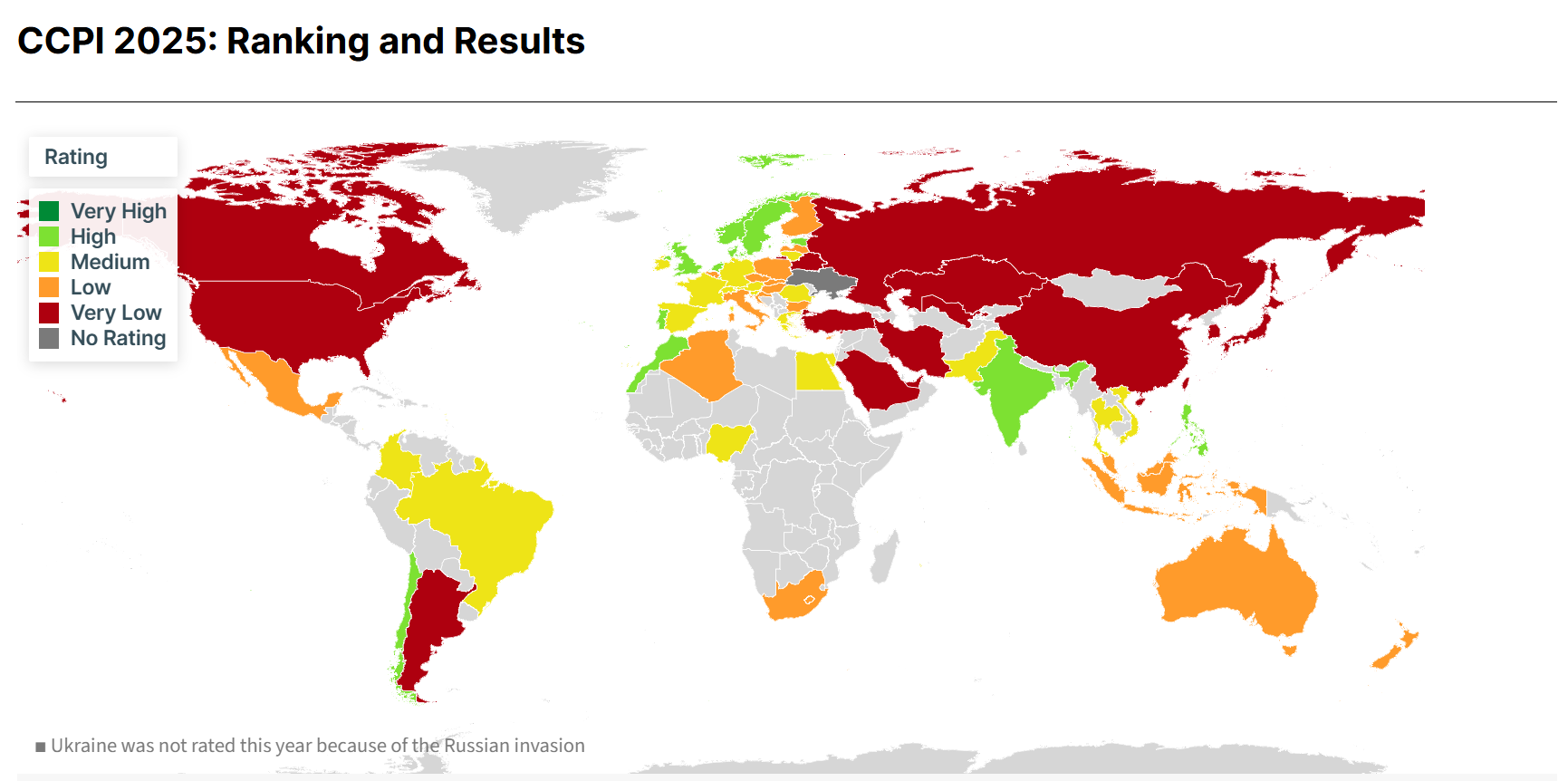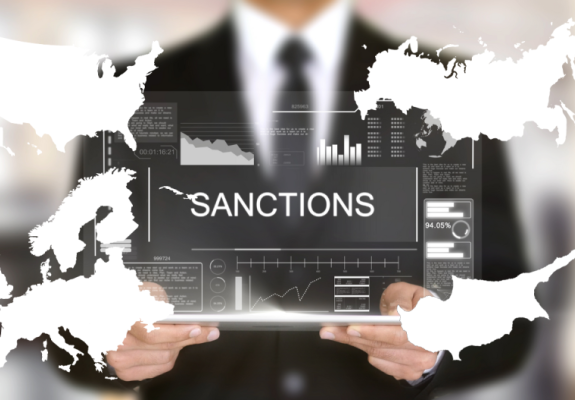Cyprus Drops to 44th in Climate Change Performance Index
CCPI 2025 Report Highlights Cyprus’s Struggles in Renewable Energy and Climate Policy
Cyprus has dropped to 44th place globally and 22nd among EU member states in the 2025 Climate Change Performance Index (CCPI), ranking among the lowest performers both globally and regionally. This marks a decline from last year’s position of 42nd, placing the island nation near the bottom of the list.
According to the report, Cyprus continues to struggle in key areas of climate mitigation, such as greenhouse gas emissions (GHG), energy use, renewable energy, and climate policy.
Cyprus received a medium rating for both GHG emissions and energy use, but its performance was notably low in renewable energy, where it received one of the lowest ratings in the index. This ranking highlights the country’s ongoing dependence on fossil fuels, particularly fossil gas, as a primary decarbonisation measure. Such reliance poses a risk of stranded assets and carbon lock-ins, making it difficult for the country to transition to a low-carbon energy system. The island also scored very low in the climate policy category, reflecting a lack of ambitious measures and clear vision in its long-term climate strategy.
The Effort Sharing Regulation (ESR), which sets binding emission reduction targets for EU member states, requires Cyprus to reduce its greenhouse gas emissions by 32% by 2030, compared with 2005 levels. However, experts have criticized the current policies as insufficient to meet this target. Cyprus’s climate action framework remains fragmented, and the country has yet to implement the structural changes needed to meet EU targets, says the report.

Cyprus faces significant barriers in expanding its renewable energy sector, especially with regard to energy storage mechanisms. This makes it difficult for the country to fully utilise renewable energy when conventional energy sources are not available. Despite these challenges, Cyprus has seen some success in promoting renewable energy production. Over 3,000 applications were processed in the past year for photovoltaic systems, suggesting that the country’s schemes to encourage renewable energy adoption are effective.
However, the implementation of renewable energy projects has raised concerns. CCPI experts pointed out instances where photovoltaic parks were constructed without considering environmental impacts, such as building in areas of high biodiversity or on agricultural land. Moreover, a few large companies dominate the renewable energy sector, raising questions about competition and sustainability.
The CCPI experts urge Cyprus to urgently upgrade its electricity grid to accommodate a higher share of renewable energy. They also recommend the creation of renewable energy communities to support decentralised energy production, along with an effective GHG emissions monitoring system to track progress and ensure accountability.
While the country has measures in place to restrict deforestation and follows the EU’s Common Agricultural Policy (CAP), experts argue that Cyprus’s climate policies need a comprehensive overhaul to align with EU and global climate goals.
Despite the setbacks, Cyprus’s involvement in the European Climate Law provides a framework for strengthening national climate policies. The law aims to enhance the country’s commitment to mitigating climate change by setting clear, binding targets and promoting coordinated action across EU states. For Cyprus, the real challenge will be implementing the necessary measures to meet the ESR targets by 2030 and to move away from fossil fuels toward a more sustainable, renewable energy-driven economy.

The 2025 CCPI ranking places Denmark in the top position, followed by the Netherlands in second and the United Kingdom in third. The Philippines and Morocco round out the top five. On the other end of the spectrum, Iran, Saudi Arabia, UAE, Russia, and South Korea occupy the bottom five spots.
The United Kingdom, which was a loser in last year’s CCPI, has seen a remarkable improvement this year, earning a winner designation. This shift is attributed to several key policy changes, including the closure of the last coal-fired power plant, a ban on new fossil fuel licenses, and investments in public transport. In contrast, Argentina at 59th place ranks as one of the losers of this year’s index, with its new government questioning the reality of climate change, which has impeded progress on climate policy implementation.
The Climate Change Performance Index (CCPI), published annually since 2005, provides an independent evaluation of climate mitigation performance for 63 countries and the EU, which together account for over 90% of global greenhouse gas emissions.
The index assesses countries across four categories: greenhouse gas emissions, renewable energy, energy use, and climate policy. With the help of 450 national experts, the CCPI evaluates how countries are fulfilling their climate obligations under the Paris Agreement and whether they are on track to mitigate the effects of climate change. The rankings, which are based on 14 indicators, aim to increase transparency and foster competition among nations to raise their climate ambitions.






